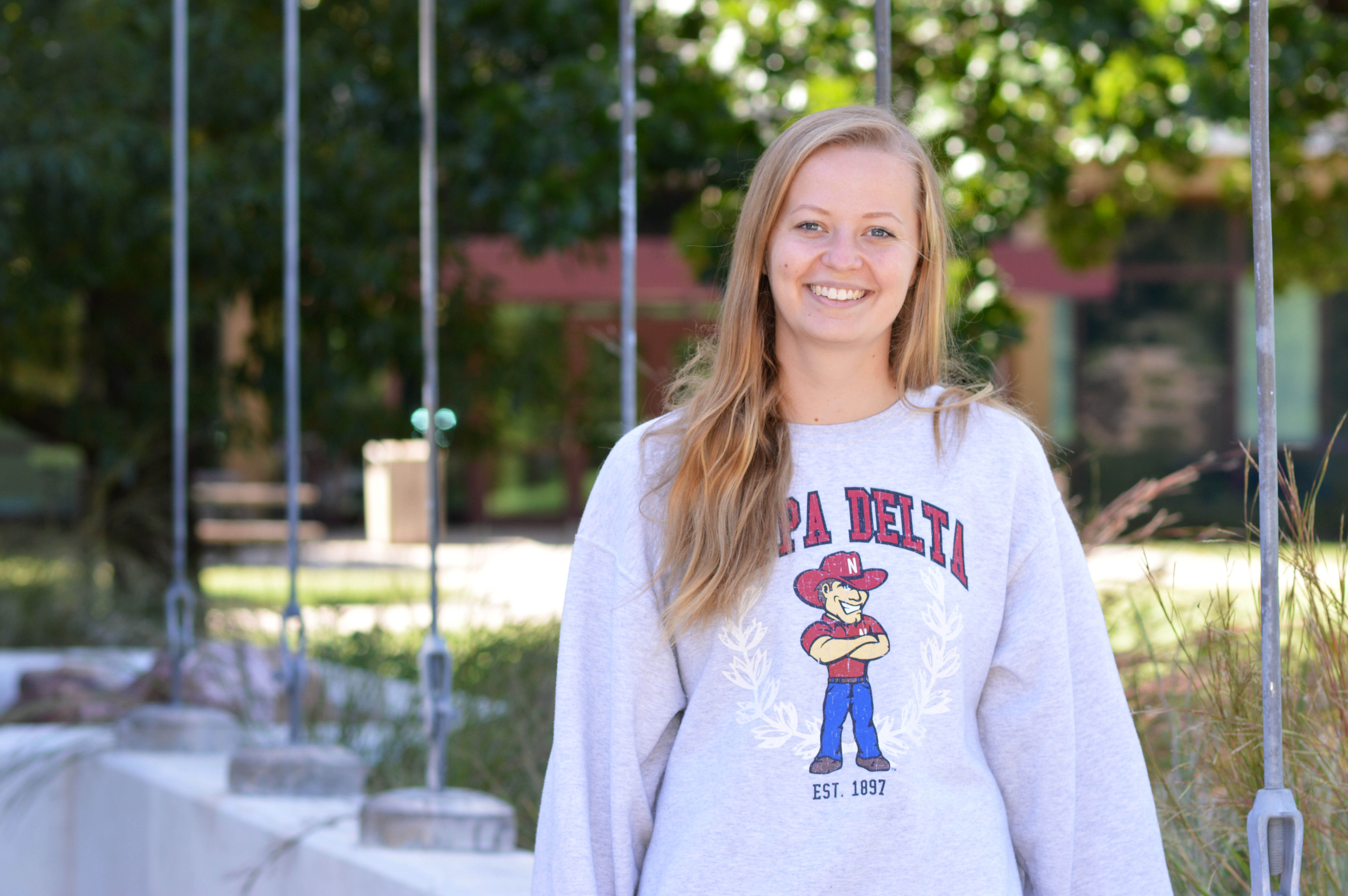
Alli Carothers has worked with sea turtles in Mexico, cheetahs with the Smithsonian, and done three research projects during her time at University of Nebraska-Lincoln. And she’s just getting started.
The senior fisheries and wildlife and animal science double major credits her opportunities with her willingness to put herself out there and work hard.
“People ask me how I get so many opportunities, and I say, ‘I kind of force my way into things’,” she said.
But it’s not just her go-getter attitude that makes Carothers this week’s #SNRStudentSpotlight, it’s her passion for doing science.
Carothers started as a biology major but decided to switch after looking over the coursework. She wanted to steer away from human science and onto animals.
“If I have this passion for animals and the environment, I kind of feel like it’s my responsibility to use my career to further it,” she said.
Carothers began volunteering with Dr. Dennis Ferraro’s herpetology lab and credits that with her internship with Omaha’s Henry Doorly Zoo. She worked in the education department teaching about sea lions, penguins and elephants.
Through SNR, she completed two UCARE research projects and an independent study. She also took classes like eco physiology and reproductive physiology that sparked a passion for physiology.
This passion led Carothers to spend her spring 2018 semester with the Endangered Species Conservation Program at the Smithsonian taking classes and conducting a research project. Through preparation and interviews, she got accepted to work in the Gamete Bio Research Lab with Dr. Marcia Ferraz.
Her project was on the effects of oviduct exosomes on sperm-ooctyle interaction in feline species. This means she was working on captive breeding in cats and how scientists can do it more successfully. She used domestic cats as a model, but thinks that it can be used on cheetahs and other endangered cats in the future.
Her research helped Carothers realize she wants to study reproductive physiology for her career.
“I realized I was understanding what the scientists were saying, and I could ask intelligent questions about it,” she said. “Oh my god, I know what you’re talking about.”
This summer, Carothers lived in Mexico for two months at the San Pancho Turtle Center. She researched how climate change affects sea turtle hatching success and different conservation methods.
Now, Carothers works remotely with the IUCN updating their information on Mediterranean reptiles. She plans to get her masters and doctorate degrees and help develop assistive reproductive tech. In the future, she sees herself teaching in a college or working with a zoo on their captive programs.
Carothers said SNR has helped her by allowing her to make choices about her classes and take things she thought were important.
“I could mold this major into what I wanted to get out of it,” she said.
Alli Dickey, for the School of Natural Resources